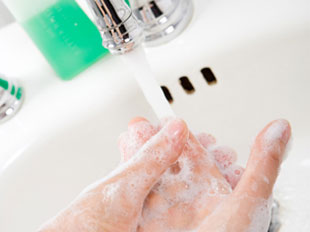Roughly 2 million people each year acquire an infection while in the hospital

According to the Centers for Disease Control, roughly 2 million people each year acquire an infection while in the hospital. And thanks to an overuse of antibiotics, resistant bacterial infections are on the rise. Many of us carry these fierce pathogens without knowing it, picking them up in locker rooms, gyms, and schools. They can attack compromised immune systems or weasel into surgical openings or minor wounds. And with complications like pneumonia developing after H1N1 infections, experts are concerned about superbugs planting their hooks in flu patients.
But you can protect yourself from mutant menaces like Clostridium difficile and methicillin–resistant Staphylococcus aureus (MRSA):
- Wash your hands for 30 seconds. Avoid antibacterial soap, which doesn’t perform any better than regular suds… and could increase your susceptibility to resistant strains.
- If you’re hospitalized, ask caregivers and visitors to scrub up in your presence.
- Always use soap and water to clean any scrape or cut immediately to reduce risk for infection. Even minor abrasions or bites can turn sinister, so seek treatment if the skin turns red, swollen, or tender.
- Monitor high fevers, breathing troubles, and coughs; get medical attention if they persist, or go away but return.
- Take antibiotics only for bacterial infections — viruses don’t respond to the drugs. If you’re prescribed an antibiotic by your doctor, take the full dosage for the number of days prescribed — no more, no less.

